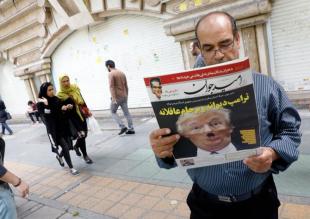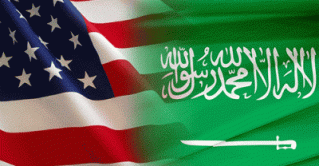DIGITAL ARTICLE | COMMENTARIES by: Tridivesh Singh Maini
When Iranian Foreign Minister, Dr Javad Zarif extended an invitation to Pakistan to join the ambitious Chabahar port project (about 70 kilometers from China’s ambitious Gwadar port project) during his visit to Pakistan, close attention was paidby sections of India’s strategic community, and understandably so.
“We offered to participate in the China-Pakistan Economic Corridor (CPEC). We have also offered Pakistan and China to participate in Chabahar,” he said in alecture at the Institute of Strategic Studies Islamabad (ISSI).
He also said that Iran’s ties with India were not in any way targeted at Pakistan, just as Islamabad’s ties with Riyadh were not against Iran.
Surprise in India
This invitation extended to Pakistan surprised many in India, given the fact that it provided financial assistance for phase one of the projectand will operate two berths. During Iranian President Hassan Rouhani’svisit in February 2018, one of the tangible outcomes was the lease contractsigned by Indian Port Global Limited (IPGL) with Iran’s Port and Maritime Organization, for operating phase one of the Shahid Beheshti Port for a period of 18 months. The joint statement also made a clear reference to India’s unwavering commitment to the Chabahar-Zahedan rail line, which will enable transportation of goods all the way to the Afghan border. The Indian side also said it would like to see Chabahar as part of the International North South Transport Corridor (INSTC). The INSTC will help connect India to Russia and Europe, via Iran.
Chabahar as India’s answer to Gwadar
Many in India see Chabahar as India’s answer to the Gwadar Project, and, of course, it’s gateway to Afghanistan and Central Asia. The project is especially important as it enables India to bypass Pakistan, which has flatly refused to give India access to Afghanistan and Central Asia. In 2016, during Prime Minister Modi’s visit to Iran, India, and Afghanistan he signed a three-nation transport and transit corridorpact to enhance connectivity. While leaders of all three countries spoke about the relevance of this agreement in the context of connectivity, the Iranian president made it clear that it was not targeted at anyone.
“Not against any other country ... it is beneficial to the entire region,” said Rouhani.
India also sent a consignment of wheat (15,000 tonnes) to Afghanistan through the Chabahar Port in 2017. The shipment was dispatched from Kandla (Gujarat, India) and reached Chabahar in Iran. From Chabahar it was transported by road to Nimroz Province in Afghanistanby land.
India’s response
“It is the prerogative of the government of the Islamic Republic of Iran to choose its partners for the development of infrastructure facilities there,” said India spokesman Raveesh Kumarin a press briefing.
Kumar also noted the strategic relevance of the project given its geo-political importance.
India-Iran ties beyond Chabahar
Since the signing of the nuclear agreement in 2015 between Iran and the P5+1 countries, it has not just been the Chabahar project that has received a fillip, but also business linkages with Iran. In 2017, India’s oil imports from Iran rose to 4.37 million barrelsper day, while there was a dip between April-December 2017 due to tensions between both countries over the Farzand B gas field. Iran was supposed to award the gas field to India, but there have been differences over terms and conditions. During Rouhani’s visit it was decided to address the obstacles related to banking and taxation, for closer economic linkages.
Iran has thus emerged as an important strategic and trade partner for India.
What may have surprised sections of the government and strategic thinkers is the Iranian offer for Pakistan to join, in spite of bilateral tensions. In May 2017, Iranian Army Chief Major General Mohammad Bagheri threatened to strike terror camps in Baluchistan (Pakistan) after the killing of 10 Iranian guards by Jaish-Al-Adlin the Sistan-Baluchestan province.
“Unless Pakistan control[s] the borders, arrest[s] the terrorist and shut[s] down their bases ... we will hit their safe havens and cells wherever they are,” he said.
Since then tensions between the US and Iran have risen, and the latter has a close relationship with China. This has reshaped the Pakistan-Iran dynamic.
New Delhi’s real challenge
The real challenge for India in the near future is the hawkish stance of US President Donald Trump’s most recent appointee, Secretary of State Michael Pompeo,a former head of the CIA. Trump is also likely to replace his National Security Advisor HR McMaster, and one possible replacement is John Bolton(former US Ambassador to the United Nations) a known hawk on Iran.
Pompeo would go along with Trump and have no qualms in scrapping the dealin May 2018, the next date when the issue comes up for consideration.
Pompeo’s predecessor Rex Tillerson disagreed with Trump on the issue on more than one occasion. During the US presidential election campaign, Trump criticized the nuclear agreement, dubbing it a “disaster” and “the worst deal ever negotiated’”. In an address to a Pro-Israel Lobby group, AIPAC,he said dismantling the deal would be his first priority.
Former Secretary of State, Rex Tillerson, no dove on Iranby any stretch of the imagination, categorically stated that dismantling the deal was not in US interests, though Trump disagreed. Commenting on their disagreements on Iran, Trumpsaid:
“When you look at the Iran deal, I think it’s terrible … it was okay. I wanted to either break it or do something, and he felt a little bit differently. So we were not really thinking the same.”
Tillerson was closely working with European countriesto rework the deal, and address some of the Trump administration’s concerns.
Chair of the Senate Foreign Relations Committee,Bob Corkeralso predicted Trump would walk out of the deal.
“The Iran deal will be another issue that’s coming up in May, and right now it doesn’t feel like it’s going to be extended,” he said.
More aggressive Saudi Arabia
Saudi Arabia is likely to become more aggressive after the exit of Tillerson. On the eve of Saudi Crown Prince Mohammed Bin Salman’s arrival in the US, the Saudi Foreign Minister, Adel al-Jubeircriticized the Iran nuclear deal.
“Our view of the nuclear deal is that it’s a flawed agreement,” he said.
During the Saudi Prince’s Saudi visit Trump did not miss out on an opportunity to lambast the Iran nuclear agreement. While commenting on the future of the deal, the US Presidentsaid:
“The Iran deal is coming up soon and you will see what will happen … Iran hasn’t been treating that part of the world, or the world appropriately.”
According to the Arab Newsit was also decided that the UAE, Saudi Arabia and US would set up a trilateral security forum which would look not just at issues pertaining to the Middle East and Iran, but also South Asia.
Conclusion
India would be advised to be cautious, and while some sections of the right have been ecstatic with Trump’s stance vis-à-vis Pakistan, as well as China, New Delhi needs to be prepared for some turbulence, as a consequence of the recent changes within the Trump administration.
New Delhi needs to articulate its strategic and economic interests in Iran, not just to the US, but also Saudi Arabia. In the past, the US has not objected to Iran’s close ties with India, but it remains to be seen whether or not Trump and his team will exhibit flexibility and pragmatism vis-à-vis Iran.
New Delhi has myriad foreign policy challenges, and Trump’s rigidity towards Iran is likely to be a major one in the near future.
Tridivesh Singh Maini is a policy analyst, commentator and writer. He is an Assistant Professor, Jindal School of International Affairs, OP Jindal Global University, Sonipat, and a visiting fellow at AIDIA, Kathmandu. Twitter handle: @tridiveshsingh
 English to re-enter Indonesian classrooms
English to re-enter Indonesian classrooms  New Delhi's real worry: Trump's unpredictability on Iran
New Delhi's real worry: Trump's unpredictability on Iran  Missile defense dilemma for Saudi Arabia
Missile defense dilemma for Saudi Arabia